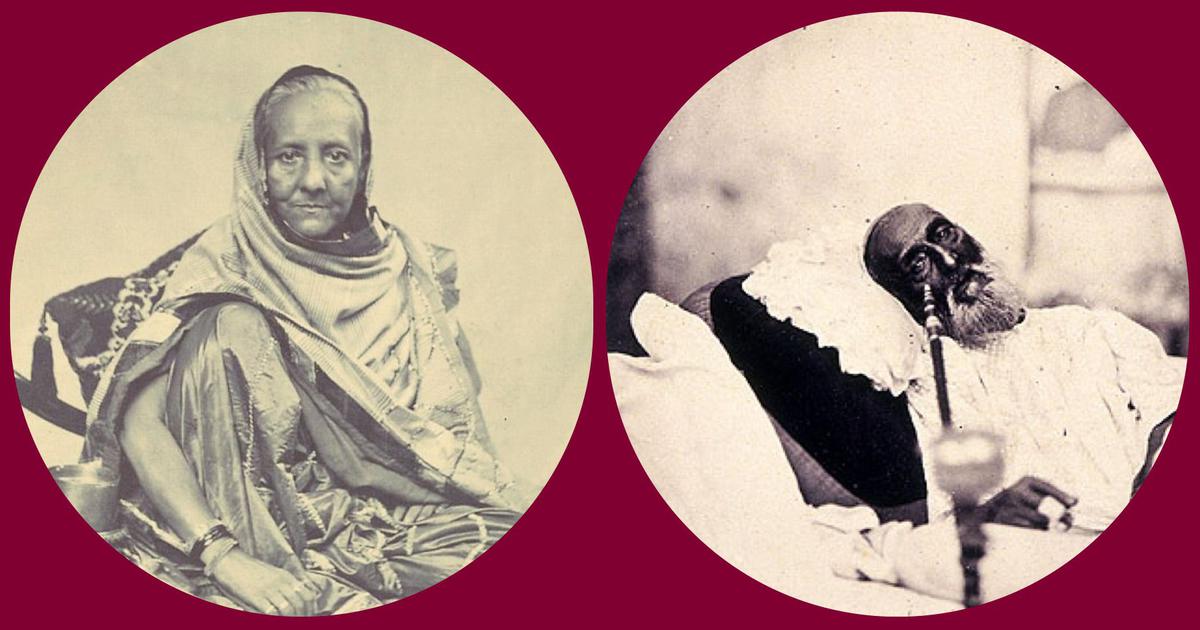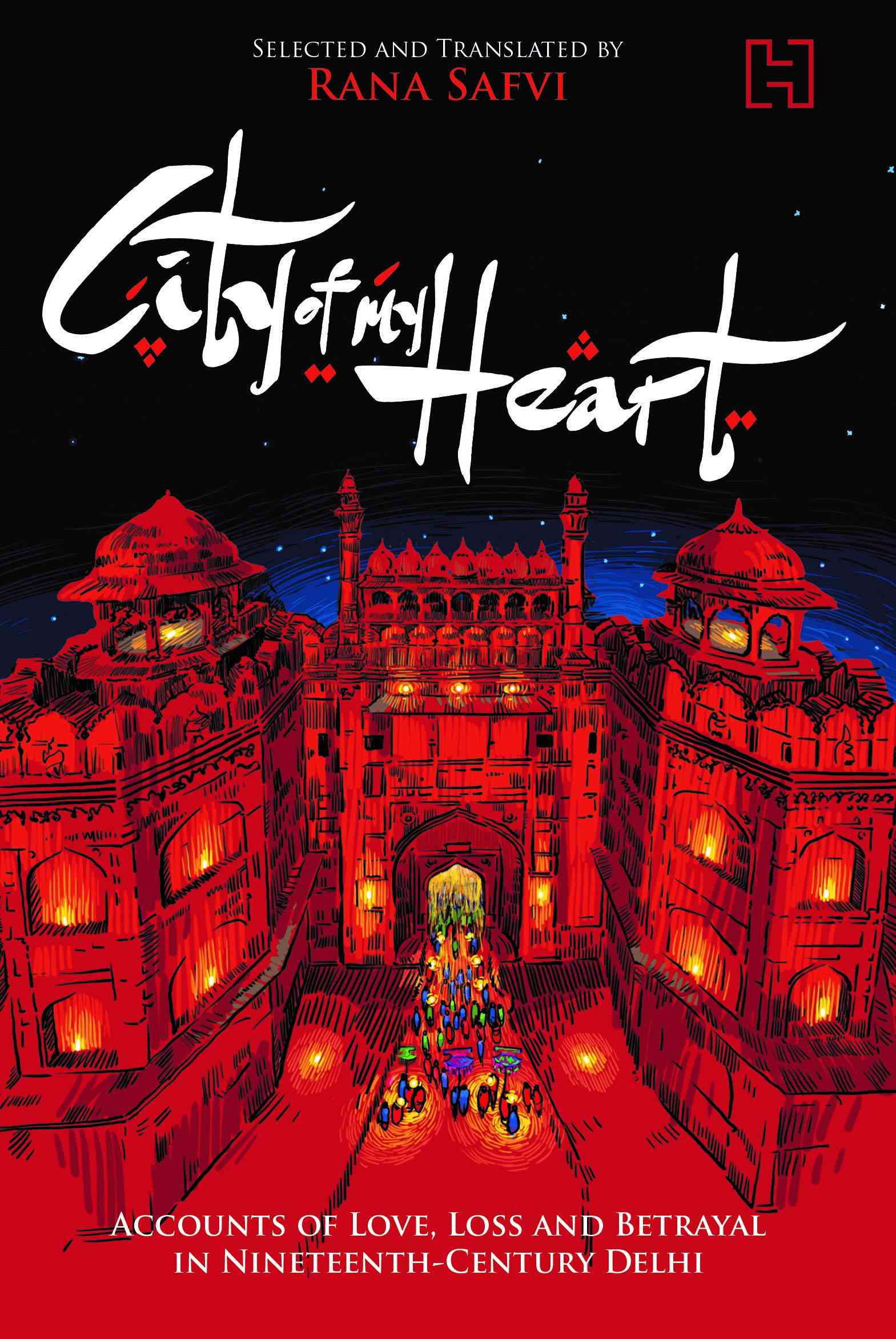INDIA :
A translation of one of the many stories collected by Khwaja Hasan Nizami about the survivors of the Mughal emperor’s family.
Khwaja Hasan Nizami wrote numerous books on the events that unfolded in 1857, all based on eyewitness accounts of the survivors. Begamat ke Aansu: Tears of the Begums are stories collected by Khwaja Hasan Nizami from the survivors of the Mughal family after the fall of Delhi in September 1857, when they had to flee from the Red Fort. Begamat ke Aansu was originally published in 1922 and has been reprinted many times since. This story is one of the accounts from Begamat ke Aansu. It describes Kulsum Zamani Begum’s escape from the Red Fort.
This is the true story of a female dervish who suffered through the travails of life. Her name was Kulsum Zamani Begum, and she was the pampered daughter of Delhi’s last emperor, Abu Zafar Bahadur Shah. Although she died a few years ago, I have heard her story from her own mouth many times. She was a sincere devotee of Mehboob-e-Ilahi Khwaja Nizamuddin Auliya and was so attached to his dargah that she would often come there. I would talk to her there and listen to her tragic tale. Whatever I have written down has been told to me either by her or her daughter, Zainab Zamani Begum, who is still alive and lives in Pandit ka Kucha.
Her story is narrated below in her own words:
“The night my Babajan lost his empire and the end was near, there was a tumult in Lal Qila. The very walls seemed to be weeping.
“The pearly white marble palaces had been blackened by soot from the gunfire and cannon shots in the past four months. No one had eaten for a day and a half. Zainab, my daughter, was a year-and-a-half old and crying for milk. Neither I nor any of the foster mothers were lactating because of the hunger and trouble all around us. We sat disconsolately when Hazrat Zill-e-Subhani’s special khwaja sara came to call us. It was midnight and the pin-drop silence was broken by intermittent cannon shots. We were terrified, but since Zill-e-Subhani had called us, we immediately left our palace and presented ourselves before him.
“Huzur sat on his prayer mat with a rosary in his hands. I stood before him and presented three salutations. Huzur called me close to him with great affection and said, ‘Kulsum, I entrust you to the care of Khuda. If fate permits, we will meet again. Go away immediately with your husband. I am also leaving. I don’t want to separate myself from my beloved children at this stage, but I don’t want to embroil you in my problems. If you are with me, destruction is certain. Maybe if you are alone, God will open a path of escape for you.’
“He raised his shaking hands in prayer and cried out to Allah, ‘Dear god, I entrust this orphan girl into your care. Brought up in magnificent palaces, they now venture into the wilderness and desolate jungles. They have no friends or protectors. Please protect the honour of these princesses of the Timurid dynasty. Preserve their honour. The entire Hindu and Muslim population of Hindustan are my children and trouble surrounds them all. Don’t let them suffer because of my actions. Give them relief from all troubles.’ With that, he patted my head, embraced Zainab, gave a few jewels to my husband Mirza Ziauddin, and sent us off along with Nur Mahal Saheba, who was Huzur’s begum.
“We left the Qila before dawn. My husband, Mirza Ziauddin, and the Badshah’s brother-in-law, Mirza Umar Sultan, accompanied the three women: myself and two other ladies, Nawab Nur Mahal and Hafiza Sultan, whose daughter was married to one of the emperor’s sons.
“When we climbed into our bullock cart, it was dawn. Only the morning star still twinkled in the sky, and all the other stars had vanished. We cast a last glance at the royal palace. We wept and yearned for what had once been our happy abode. Nawab Nur Mahal’s lashes were laden with tears and the morning star was reflected in them.
“We left the Lal Qila forever and reached Kurali village, where we rested for a while in the house of our cart driver. We were given bajra roti and some buttermilk. We were so hungry that the food tasted better than biryani and mutanjan.
“That night was spent peacefully, but the next day jats and gujjars from nearby areas came to loot Kurali. They were accompanied by hundreds of women who encircled us like witches. They took away all our jewellery and clothes. While these coarse women snatched the jewellery off our necks, we got a whiff of their breath which smelt so foul that we felt nauseous. After this, we didn’t even have enough money to buy ourselves our next meal. We didn’t know what was in store for us now.
“Zainab began to howl with hunger. A zamindar was passing by and I cried out, ‘Bhai, please give some water to this baby.’ The blessed man brought some water in an earthen cup and said, ‘From today, you are my sister and I’m your brother.’
“He was a well-to-do person from Kurali, and his name was Basti. He brought his cart and said he would take us wherever we wanted to go. We asked him to take us to Ijara, where Mir Faiz Ali, who was the shahi hakim and a long association with our family, lived. But when we reached Ijara, Mir Faiz Ali was extremely discourteous and refused to shelter us. ‘I am not going to destroy my house by giving you shelter,’ he told us.
“We were heartbroken and didn’t know what to do. Penniless and homeless, we were scared of the British forces chasing after us. Those who were eager to follow every glance of our eyes and obey even our slightest gestures had now turned away from us.
“And then there was Basti, who didn’t leave our side and fulfilled his covenant of calling me his sister. We left Ijara and set our destination as Hyderabad.”
Kulsum Zamani Begum eventually reached Hyderabad with her family and lived there for some time. For some time her husband made a living by making and selling calligraphic pieces and teaching the Quran but as the British influence spread to Hyderabad and they lived in fear of being arrested they were more or less housebound. Whatever jewellery had escaped loot on the way to Hyderabad had been sold off.
The son of Bahadur Shah Zafar’s spiritual master Kale Miyan Saheb Chisti Nizami Fakhri, heard of their plight and arranged finances for them. They left for Mecca to make the Hajj pilgrimage. Basti, who had stood by them like a rock, was sent home from Bombay with whatever reward they afford for his invaluable services.
“Aboard the ship, whoever heard that we were the Shah-e-Hind’s family was eager to meet us. We were all dressed in the clothes of dervishes. One Hindu, who owned a shop in Aden and had no idea who we were, asked us which sect of fakirs we belonged to. The question inflamed our wounded hearts. I replied, ‘We are the disciples of the Mazloom Shah Guru. He was our father and our guru. Sinners have snatched away his crown and separated us from him and exiled us into the wilderness. Now he longs for us, while we are restless and yearn for a glimpse of his face. That is the truth of our faqeeri.’
“The Hindu began to cry when he heard our story and said to us, ‘Bahadur Shah was our father and guru but what could we do? It was Lord Ram’s will, and an innocent man was destroyed.’”
They lived in Mecca for several years before returning to Delhi.
“When we came back, the British government took pity on us and fixed a sum of ten rupees per month for us. I laughed at this pension. They had taken away my father’s empire and offered us ten rupees as compensation.
“But then I remembered, this land belongs to god and he gives it to whoever he wants and takes it as he pleases. Man can do nothing about that.”
Excerpted with permission from City Of My Heart: Accounts Of Love, Loss And Betrayal In Nineteenth-Century Delhi, Selected and Translated by Rana Safvi, Hachette India.
source: http://www.scroll.in / Scroll.in / Home> Book Excerpt / by Khwaja Hasan Nizami & Rana Safvi / November 01st, 2018










